Are you considering embarking on a winter camping trip all on your own? Adventuring out into the frigid wilderness can be a thrilling and challenging experience, but it’s essential to be fully prepared in order to ensure your safety and enjoyment. In this blog post, we will provide you with four essential tips that will help you survive and thrive during your solo winter camping excursion. For a comprehensive guide to winter camping, visit Winter camping: Everything you need for a safe trip.
First and foremost, it’s crucial to be well-equipped with the appropriate gear and clothing to withstand the harsh conditions. Secondly, proper shelter and fire-building techniques are essential for staying warm and safe. Additionally, knowing how to navigate the terrain and deal with potential emergencies is key to surviving winter camping alone. Finally, we will discuss the importance of packing enough food and water for your solo journey. By following these four essential tips, you can prepare yourself for a successful and enjoyable winter camping experience.
Key Takeaways:
- Be prepared: Ensure that you have the right gear, clothing, and supplies to stay warm and safe in the winter wilderness.
- Know the terrain: Familiarize yourself with the area where you will be camping and understand the potential risks and challenges that may arise in winter conditions.
- Stay dry: Keeping your clothing and gear dry is crucial to avoiding hypothermia and maintaining body heat in cold weather.
- Maintain communication: Let someone know your plans, expected return time, and emergency contact information before heading out on a winter camping trip alone.
- Respect the weather: Be flexible and prepared to change your plans if weather conditions become too severe for safe camping. Safety should always be the top priority.
Essential Tip 1: Planning and Preparation
If you’re thinking about taking on the challenge of winter camping alone, the first and most important step is thorough planning and preparation. Proper planning is essential to ensure a safe and successful trip. Here are some key aspects to consider when preparing for a solo winter camping adventure.
Researching Your Destination
Before embarking on your winter camping trip, it’s crucial to research your destination thoroughly. Consider factors such as weather conditions, terrain, and potential hazards specific to the area. Are there any wildlife or natural obstacles that could pose a threat to your safety? Understanding the environment will help you prepare adequately and anticipate challenges you may face.
Essential Gear Checklist
Having the right gear is paramount to your survival in the unforgiving winter wilderness. Your gear checklist should include essential items such as a sturdy tent, a high-quality sleeping bag rated for extremely low temperatures, insulated clothing, a reliable stove for cooking, a first-aid kit, and a navigation tool. Remember, your gear can mean the difference between life and death in extreme conditions. Make sure to pack extra supplies for emergencies, including food, fuel, and fire-starting equipment.
Skills Training and Knowledge Building
In addition to having the right gear, it’s crucial to possess the skills and knowledge necessary to navigate and survive in winter conditions. Are you proficient in building a snow shelter or starting a fire in the snow? Consider taking a wilderness survival course or brushing up on essential skills before your trip. Knowing how to identify and treat cold-related injuries, navigate through snowy terrain, and mitigate the risks of winter camping will significantly increase your chances of staying safe and comfortable during your solo adventure.
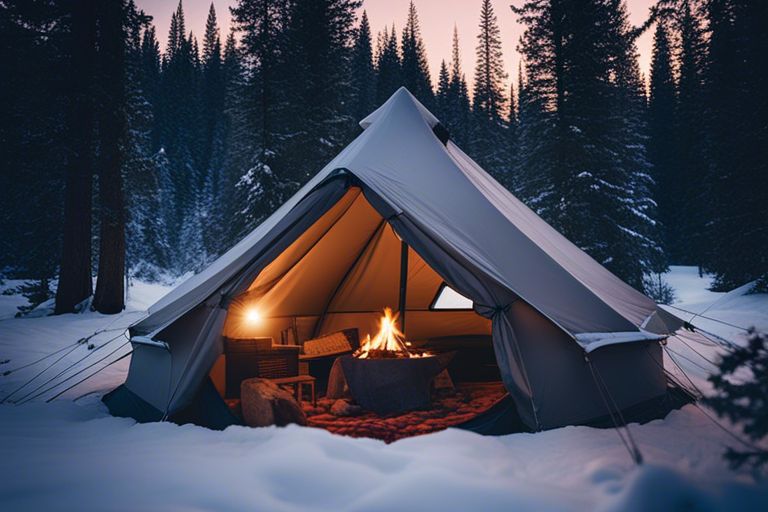
Essential Tip 2: Shelter and Warmth
Your shelter and warmth are critical for surviving winter camping alone. Ensuring that you have the right equipment and techniques in place will make all the difference in staying safe and comfortable during your adventure.
Selecting a Winter-Proof Tent
When selecting a tent for winter camping, it’s crucial to choose one that is specifically designed for harsh weather conditions. Look for a four-season tent that is sturdy and can withstand heavy snowfall and strong winds. A double-wall tent with good ventilation will help reduce condensation and keep you warm and dry. Additionally, consider a tent with a vestibule to store gear and boots, keeping them out of the elements and preserving your tent’s interior space.
Insulation Techniques for Heat Retention
Insulating your tent is key for heat retention in cold weather. Use a high-quality sleeping bag that is rated for low temperatures and consider a sleeping pad with a high R-value to prevent heat loss from the ground. **Layering is important, so wear thermal underwear and **warm layers to keep your body heat in. Additionally, consider using a hot water bottle or hand warmers to keep your extremities warm during the night.
Managing Ventilation to Control Condensation
While it may seem counterintuitive, proper ventilation is essential for controlling condensation inside your tent. **Too much condensation can dampen your sleeping bag and clothing,** making it difficult to stay warm. Ensure that your tent has vents that you can adjust to allow for proper airflow. You can also leave a small opening in the vestibule to **facilitate airflow.** Additionally, try to prevent bringing excessive moisture into the tent in the first place by **shaking off snow and removing wet clothing before entering.**
By considering these essential aspects of shelter and warmth, you can significantly improve your chances of staying safe and comfortable during your winter camping adventure. Do you have the right tent for harsh winter conditions? Are you prepared with the necessary insulation techniques to retain heat in cold temperatures? How will you manage ventilation to control condensation and keep your tent dry? These are all important considerations for ensuring a successful winter camping experience.
Essential Tip 3: Food and Water
After ensuring you have the right gear and setting up your campsite, the next essential step for surviving winter camping alone is to prepare for your food and water needs. In cold environments, your body requires more energy to maintain warmth, so it’s crucial to plan your meals and hydration carefully to stay nourished and hydrated throughout your trip.
Caloric Requirements in Cold Environments
In cold environments, your body burns more calories to keep you warm. It’s important to consume high-energy foods to maintain your body heat and energy levels. You’ll need to pack foods that are rich in carbohydrates, fats, and protein to provide you with the necessary fuel to endure the cold. **Eating regularly** and staying **hydrated** are crucial for maintaining your energy levels and body temperature. It’s also essential to monitor your food intake and adjust it according to the level of physical activity you engage in while camping.
Safe Food Storage and Handling in Winter
Proper food storage and handling are critical in the winter to prevent spoilage and foodborne illnesses. Since temperatures can fluctuate in cold environments, it’s important to **keep your food** in insulated containers to **maintain its freshness**. Be mindful of perishable items, and if possible, opt for non-perishable food options to reduce the risk of spoilage. **Practice safe food handling** to avoid cross-contamination and ensure the food you consume is safe for consumption.
Water Sourcing and Purification Methods
Water is a fundamental need for survival, especially in winter conditions. You must have a reliable source of water and the means to purify it. **Melting snow** can be a potential source of water, but it’s crucial to purify it before consumption to prevent waterborne illnesses. You can use **water purification tablets**, a **filtration system**, or **boiling** as methods to make the water safe to drink. Additionally, it’s important to stay **hydrated** throughout the day, even if you don’t feel thirsty in the cold. Ensure you have a sufficient supply of water and the necessary means to purify it to keep yourself hydrated during your winter camping adventure.
In conclusion, food and water are essential for your survival during winter camping. **Plan your meals** to meet your increased caloric needs, **store and handle your food** safely, and ensure you have **access to a reliable water source** while being able to purify it. By addressing these needs, you can stay nourished and hydrated, allowing you to fully enjoy your winter camping experience.
Essential Tip 4: Safety and Emergency Protocols
Now that you have your gear and survival skills in check, it’s time to focus on safety and emergency protocols. When camping alone in winter, it’s crucial to be prepared for any unforeseen situations.
For a comprehensive guide on winter camping and backpacking basics, be sure to check out Winter Camping and Backpacking Basics.
Understanding Hypothermia and Frostbite
One of the most significant dangers of winter camping is the risk of hypothermia and frostbite. The cold weather can be unforgiving, and it’s essential to recognize the symptoms and know how to respond. Symptoms of hypothermia include shivering, confusion, and loss of coordination. Frostbite can result in numbness, tingling, and discoloration of the skin. If you notice any of these symptoms, it’s crucial to take immediate action.
Navigation Skills and Tools
When camping in the winter, visibility can be drastically reduced due to snowfall and fog. Having strong navigation skills and tools is crucial to prevent getting lost. Make sure you have a map and compass, and consider carrying a GPS device as a backup. Familiarize yourself with the area’s landmarks and practice using your navigation tools before heading out on your solo camping trip.
Emergency Communication and Rescue Planning
In case of an emergency, having a plan for communication and rescue is vital. Make sure you have a reliable communication device, such as a satellite phone or a personal locator beacon (PLB). Let someone know your planned itinerary and check in with them regularly. In the event of an emergency, stay calm and follow your predetermined rescue plan.
By understanding the dangers of hypothermia and frostbite, honing your navigation skills, and establishing emergency communication and rescue plans, you can significantly increase your safety while winter camping alone. These essential safety protocols will provide you with the peace of mind to fully enjoy your outdoor adventure while minimizing risks. Remember, when it comes to winter camping alone, safety should always be your top priority.
Mental and Physical Well-Being
After ensuring you have the right gear and set up your campsite, it’s important to focus on your mental and physical well-being during a winter camping trip. This is especially crucial when you are camping alone, as you won’t have someone else to rely on if something goes wrong. Here are some essential tips to help you stay healthy and strong during your solo winter adventure.
Psychological Preparedness for Solo Trips
When embarking on a solo camping trip, it’s important to mentally prepare yourself for the challenges that lie ahead. You may encounter moments of doubt, fear, or loneliness, especially at night when the darkness seems to engulf everything. It’s normal, and being aware of it is the first step to overcoming it. Having a positive mindset and focusing on the beauty and serenity of the winter landscape can help you stay grounded and keep negative thoughts at bay. Remind yourself of your strengths and resilience, and trust in your abilities to handle any situation that comes your way. Stay connected with loved ones through phone calls or texts to maintain a sense of companionship, and always have a backup plan in case you need to cut your trip short due to psychological strain.
Exercises and Activities to Stay Healthy
During winter camping, staying active is essential for both your physical and mental well-being. Regular exercises like walking, snowshoeing, or even simple stretching can help keep your blood flowing and your muscles engaged, preventing stiffness and fatigue. Engaging in activities such as photography, journaling, or even just sitting by the campfire can also provide an outlet for relaxation and creative expression. Remember to stay hydrated and eat nutritious, energy-rich foods to keep your body fueled for the cold weather. Your mental and physical health go hand in hand, so make sure to prioritize both during your winter camping adventure.
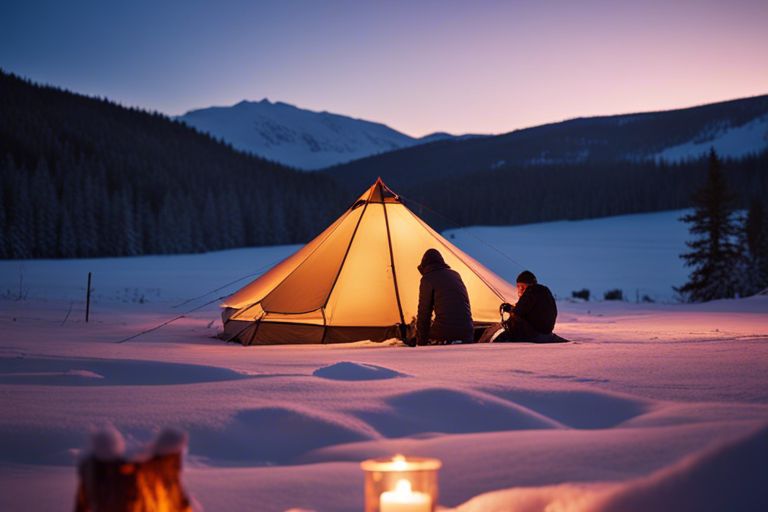
Respect for Nature and Leave No Trace
Lastly, when winter camping alone, it is crucial to have a deep respect for nature and to adhere to the principles of Leave No Trace. As a responsible camper, it is your duty to minimize your impact on the environment and preserve the natural beauty of the wilderness.
Minimizing Impact on the Environment
When setting up your campsite, make sure to choose a location that is already disturbed and avoid clearing new areas. Use existing fire rings and never leave a fire unattended. Always pack out all of your garbage, including food scraps, and dispose of human waste properly. Remember, leaving behind any trace of your presence not only damages the environment but also detracts from the experience for future campers.
Wildlife Encounters and Precautions
Winter camping alone, you may encounter wildlife such as bears, wolves, or coyotes. It’s essential to take precautions to ensure your safety and the safety of the animals. Store your food securely and away from your campsite, and use bear-proof containers if available. Keep all scented items, like toiletries and food, inside your tent at night, and make plenty of noise while hiking to alert wildlife of your presence. Remember, respecting wildlife and keeping a safe distance is crucial for both your well-being and the animals’ well-being.
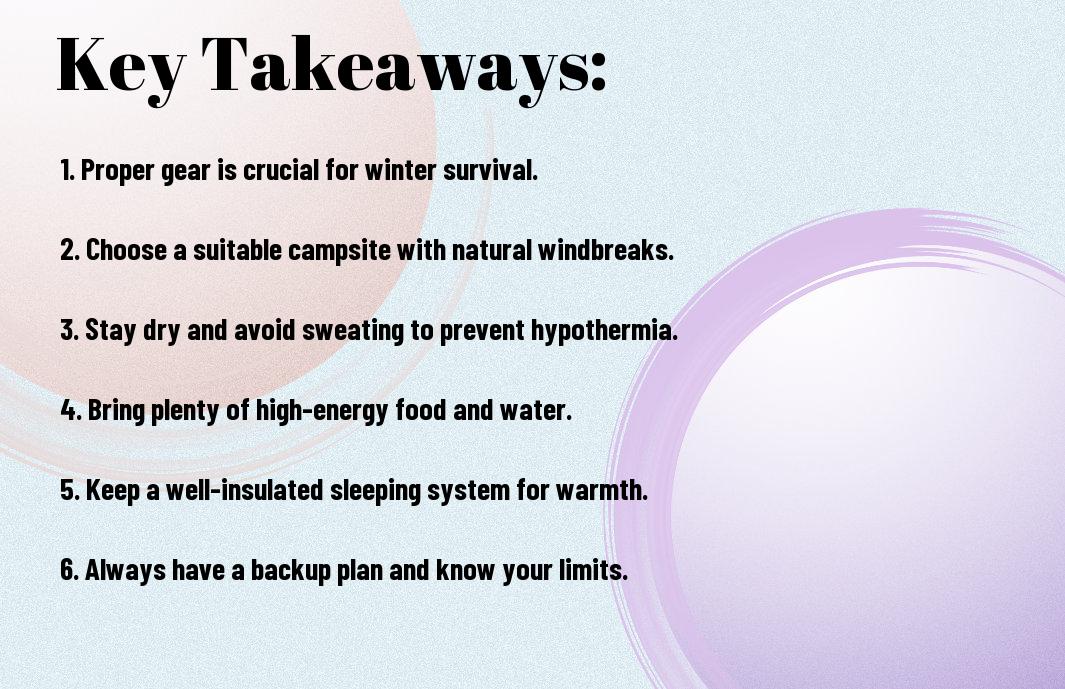
Surviving Winter Camping Alone – 4 Essential Tips
Presently, you have learned the essential tips for surviving winter camping alone. Remember to always prioritize safety by thoroughly planning and preparing before your trip. Use the proper gear and equipment, including layering your clothing, ensuring you have a reliable source of warmth, and bringing the necessary survival tools. Additionally, knowing how to build a proper shelter and being prepared for emergency situations will greatly increase your chances of a successful and safe winter camping experience. By following these tips, you can confidently venture out into the wilderness and enjoy the beauty and solitude of winter camping while keeping yourself safe and prepared for any challenges that may arise.
FAQ
Q: What are the essential tips for surviving winter camping alone?
A: The essential tips for surviving winter camping alone include staying dry, packing extra layers of clothing, keeping a fire starter and emergency kit with you, and informing someone of your plans.
Q: How can I stay dry during winter camping?
A: To stay dry during winter camping, it is important to choose the right clothing made of moisture-wicking materials, set up a waterproof shelter, and avoid sweating by adjusting layers as needed.
Q: What should I include in my emergency kit for winter camping?
A: Your emergency kit for winter camping should include items such as a first aid kit, thermal blankets, a signaling device, a multi-tool, emergency rations, and a navigation tool. It is important to be prepared for unexpected situations.

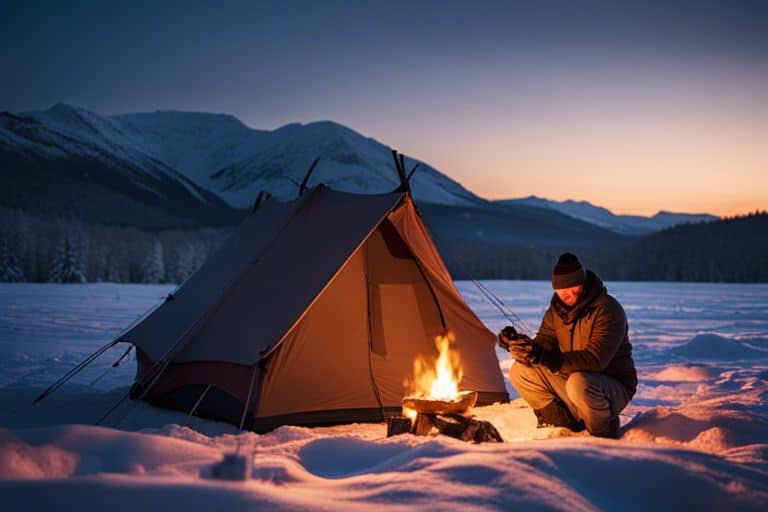
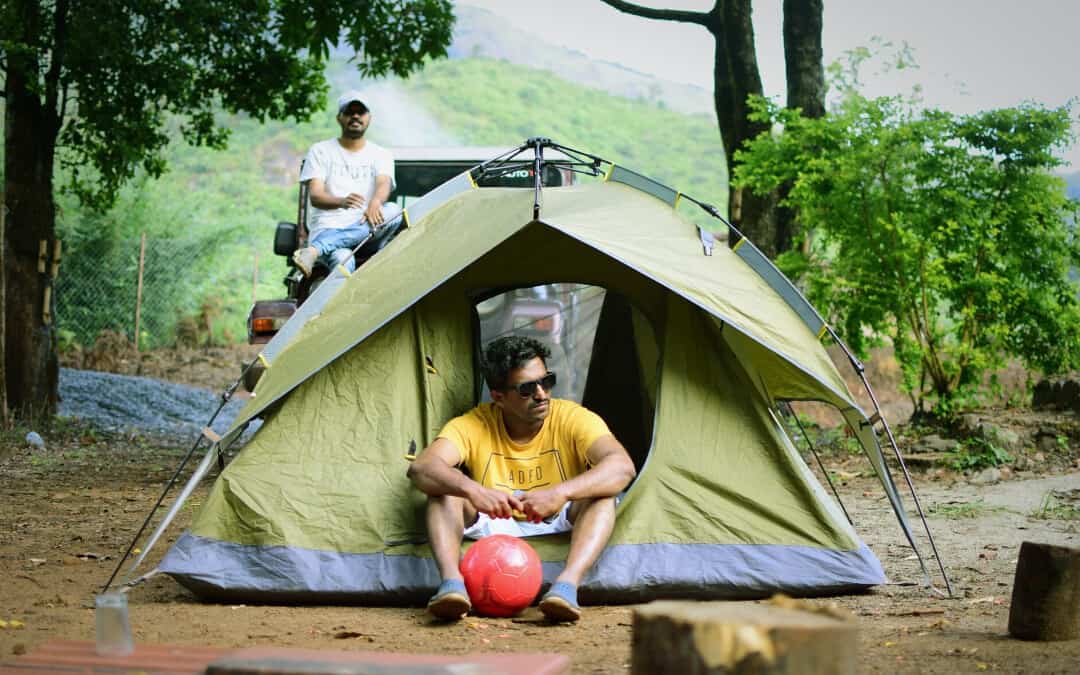
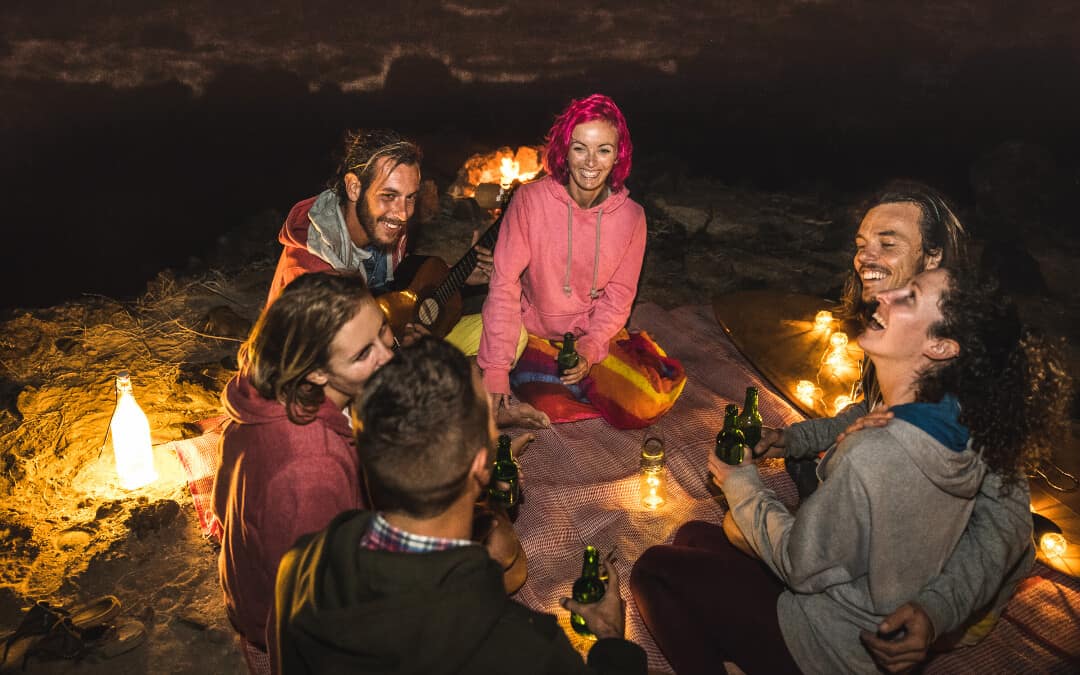
0 Comments